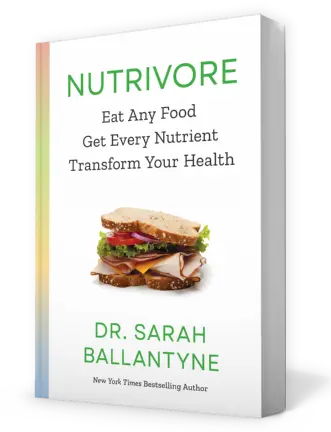Table of Contents[Hide][Show]
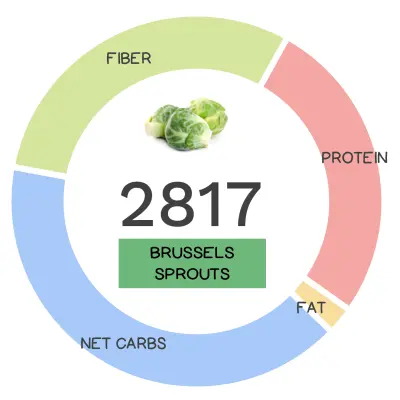
I shout, you shout, we all shout for Brussels sprouts – isn’t that how the old saying goes? It’s not? Well, it should be! As kids, the thought of being served this veggie may have “sprouted” fear in our hearts (hyuck); however, in recent years this veggie has experienced a resurgence in popularity and is becoming somewhat of a culinary superstar in gourmet circles. If you want to discover what you’re missing and give this veggie a second chance, you’ve come to the right place – get ready to be inspired!
Brussels sprouts are members of the cruciferous vegetable family, along with kale, broccoli, cauliflower, and cabbage.
Brussels sprouts, Brassica oleracea, are a small cabbage-like leafy green in the same cruciferous vegetable plant family as kale, broccoli, cauliflower, and cabbage. The term “cruciferous” comes from the Latin cruciferae, which means “cross-bearing” and refers to the shape of these plants’ flowers. As you may have guessed, Brussels sprouts are named after the city of Brussels, Belgium, where they were grown as early as the year 1200AD, but the history of this cruciferous vegetable is fairly mysterious (compared to other vegetables that have been documented for thousands of years!). They are thought to have descended from wild Mediterranean kale.
Today’s Brussels sprouts have been bred to minimize levels of bitter compounds, resulting in improved taste and rising popularity!
If you’ve recently given this veggie a second chance and found that you now actually like the taste of Brussels sprouts there is a scientific explanation (besides changing taste buds and maturity). In the 1960s, when Brussels sprouts began being mechanically harvested, cultivars were selected for yield and compatibility with this harvesting method. It just so happened that these cultivars were incredibly bitter, turning off a couple of generations of people from Brussels sprouts. In the 1990s, a Dutch scientist figured out the chemical compounds in Brussels sprouts responsible for their bitter taste. This discovery started a cascade of events ultimately resulting in the dramatic rise in Brussels sprouts popularity seen today. After the initial discovery of the bitter compounds, seed companies began searching their archives, looking for old varieties of Brussels sprouts that were low in the offending compounds. They started cross-pollinating these varieties with high-yielding varieties to create the perfect balance of optimal traits. This took many years of plant breeding but the result was plants with improved taste. With these new varieties on the market, all of a sudden Brussels sprouts began gaining popularity. So much so that farmers today are able to sell their crop for 4 or 5 times what they did only a decade ago!
Learn What Foods to *ADD* to Your Diet
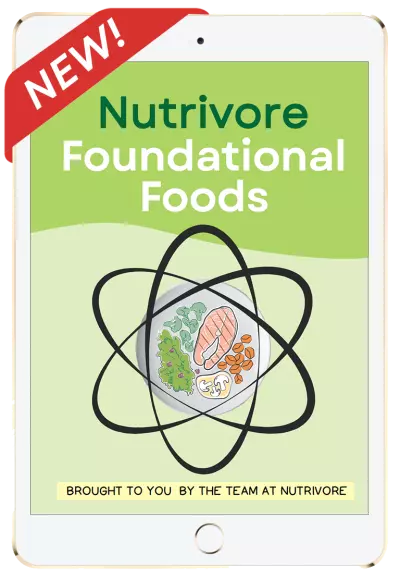
Nutrivore Foundational Foods
Learn what makes the 12 Nutrivore foundational food families nutritionally unique, their health benefits, which options are the most nutrient dense, how much of them to eat, plus various fun facts, practical pointers, and busting of common myths.
This very helpful resource will introduce you to new foods and expand your nutrition knowledge, making food choices easier!
Buy now for instant digital access.
Nutrivore Score for Brussels Sprouts – 2817
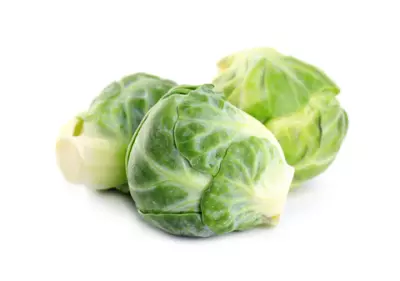
Brussels sprouts have a Nutrivore Score of 2817, making them a super nutrient-dense food! Plus, they are a low-carb and low-calorie-density food; the calorie count of Brussels sprouts is 38 calories per cup!
Per serving, Brussels sprouts are a best source (>50% daily value) of glucosinolates, vitamin C, and vitamin K; are an excellent source (20-50% daily value) of carotenoids and polyphenols; and are a good source (10-20% daily value) of fiber, manganese, vitamin B1 (thiamin), vitamin B6 (pyridoxine), and vitamin B9 (folate).
Ditch Diets. Embrace Nutrients. Start with These 5 Free Guides.
Sign up for the free weekly Nutrivore Newsletter and get 5 high-value downloads—delivered straight to your inbox—that make healthy eating simple and sustainable.

Brussels Sprouts Nutrition Facts
One serving of Brussels sprouts is standardized to 1 cup of Brussels sprouts, or about 88 grams (3.1 ounces). For reference, 1 sprout is approximately 19 grams, so 1 serving of Brussels sprouts roughly equates to only 5 sprouts! When you cook Brussels sprouts, they lose some volume: 1 cup raw Brussels sprouts is roughly equivalent to a little more than 1/2 cup boiled Brussels sprouts.
Brussels Sprouts Facts Per Serving
| Brussels sprouts, raw | Nutrivore Score: 2817 | Nutrient Density: Super! |
|---|---|---|
| Serving Size: 1 cup (88 grams) | Protein: 3.0 grams | Net Carbohydrates: 4.5 grams |
| Calories: 38 | Total Fat: 0.3 grams | Dietary Fiber: 3.3 grams |
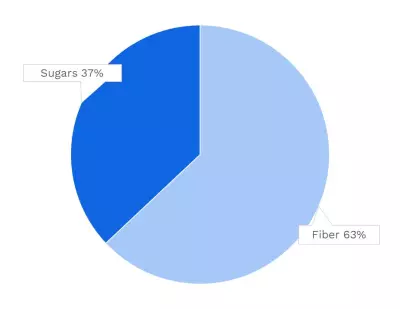
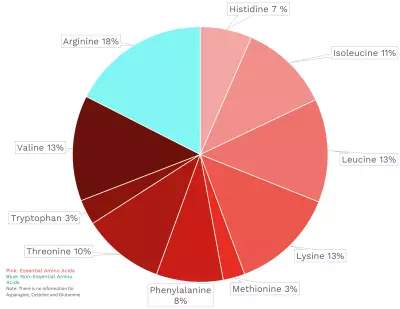
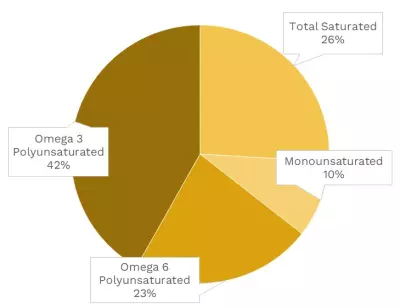
| VITAMINS | ||
|---|---|---|
| Vitamin A | 33.4 μg RAE | 4% DV |
| Vitamin B1 (Thiamin) | 122.3 μg | 10% DV |
| Vitamin B2 (Riboflavin) | 79.2 μg | 6% DV |
| Vitamin B3 (Niacin) | 0.7 mg | 4% DV |
| Vitamin B5 (Pantothenic Acid) | 0.3 mg | 5% DV |
| Vitamin B6 (Pyridoxine) | 192.7 μg | 11% DV |
| Vitamin B7 (Biotin) | ~ | ~ |
| Vitamin B9 (Folate) | 53.7 μg | 13% DV |
| Vitamin B12 (Cobalamin) | 0.0 μg | 0% DV |
| Vitamin C | 74.8 mg | 83% DV |
| Vitamin D (D2 + D3) | 0.0 μg | 0% DV |
| Vitamin E | 0.8 mg | 5% DV |
| Vitamin K | 155.8 μg | 130% DV |
| Choline | 16.8 mg | 3% DV |
| Myo-Inositol | 71.3 mg | ~ |
| CoQ10 | 0.1 mg | ~ |
| FUNCTIONAL FATS | ||
|---|---|---|
| MUFA | 0.0 g | 0% DV |
| ALA | 87.1 mg | 5% DV |
| EPA + DHA | 0.0 mg | 0% DV |
| CLA | ~ | ~ |
| Linoleic Acid | 0.0 g | 0% DV |
| MCT’s | 0.0 g | ~ |
| MINERALS | ||
|---|---|---|
| Calcium | 37.0 mg | 3% DV |
| Copper | 61.6 μg | 7% DV |
| Iodine | ~ | ~ |
| Iron | 1.2 mg | 7% DV |
| Magnesium | 20.2 mg | 5% DV |
| Manganese | 296.6 μg | 13% DV |
| Phosphorus | 60.7 mg | 5% DV |
| Potassium | 342.3 mg | 7% DV |
| Selenium | 1.4 μg | 3% DV |
| Sodium | 22.0 mg | 1% DV |
| Zinc | 0.4 mg | 3% DV |
| PHYTONUTRIENTS | ||
|---|---|---|
| Carotenoids | 1800.5 μg | ~ |
| Polyphenols | 308.4 mg | ~ |
| Phytosterols | 32.6 mg | ~ |
| Glucosinolates | 392.0 mg | ~ |
| Thiosulfinates | ~ | ~ |
| Betalains | ~ | ~ |
| AMINO ACIDS & PEPTIDES | ||
|---|---|---|
| Taurine | ~ | ~ |
| Ergothioneine | ~ | ~ |
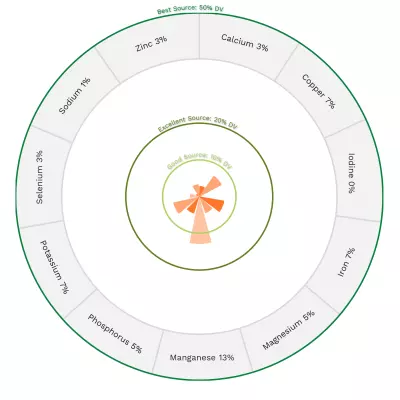
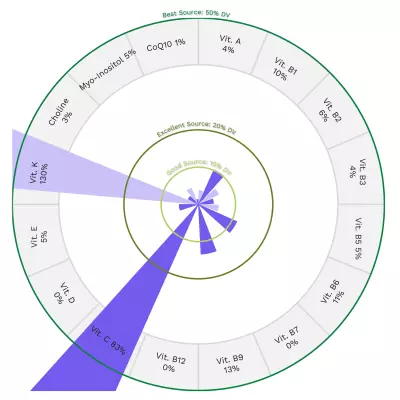
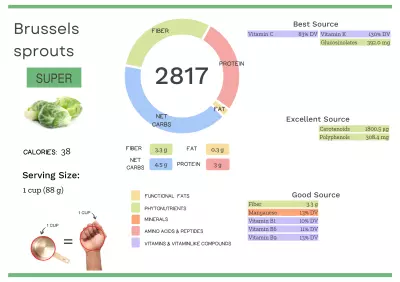
Brussels Sprouts Nutrition Varies With Cooking and Processing
The Nutrivore Score for Brussels sprouts varies depending on the method of preparation and processing. Frozen Brussels sprouts are conveniently available year-round at the supermarket and account for 80 to 85% of US production! Bags of raw shaved Brussels sprouts are also readily available.
| NUTRIVORE SCORE | |
|---|---|
| Brussels sprouts, cooked, boiled, drained, with salt | 2795 |
| Brussels sprouts, cooked, boiled, drained, without salt | 2795 |
| Brussels sprouts, frozen, cooked, boiled, drained, with salt | 2747 |
| Brussels sprouts, frozen, cooked, boiled, drained, without salt | 2747 |
| Brussels sprouts, frozen, unprepared | 2815 |
| Brussels sprouts, raw | 2817 |
Have you SPROUTed an interest in this veggie? Maybe your friends will too!
Health Benefits of Brussels Sprouts Nutrients
Let’s take a closer look at all of the best and excellent source of nutrients found in a 1-cup serving of Brussels sprouts and see how they benefit our health.
Brussels Sprouts Provide 392.0 mg of Glucosinolates
Brussels sprouts are an outstanding source of glucosinolates, providing a whopping 392.0 mg glucosinolates per 1-cup serving!
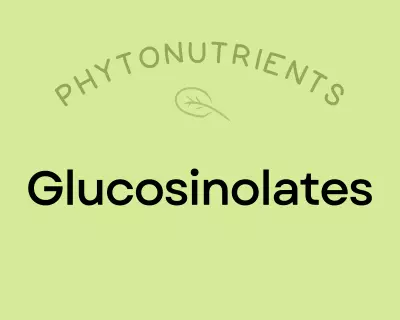
Glucosinolates are well-studied sulfur-containing compounds which break down into bioactive isothiocyanates and indoles when vegetables are damaged (via chewing, cutting, or other processing).
Isothiocyanates (like sulforaphane) are absolute rock stars as far as human health is concerned! Research spanning human epidemiology, animal models, and in vitro experiments show that dietary isothiocyanates are inversely associated with bladder cancer, lung cancer, colon cancer, breast cancer, and pancreatic cancer; some evidence also suggests they may be able to improve ventricular function following heart attacks.
Indoles also have powerful cancer prevention benefits through multiple mechanisms that include modulation of phases I and II detoxification enzymes, regulation of cell cycle arrest, control of cell growth, induction of apoptosis, antioxidant activity, anti-angiogenic effects, and epigenetic regulation. Indole-3-carbinol breaks down into 3,3′-Diindolylmethane (DIM), which is known for its anti-inflammatory, immune system modulating, cancer prevention and estrogen metabolism benefits.
Learn more about glucosinolates here.
Brussels Sprouts Provide 130% DV Vitamin K
Brussels sprouts are also a phenomenal source of vitamin K, providing 130% of the daily value per 1-cup serving.
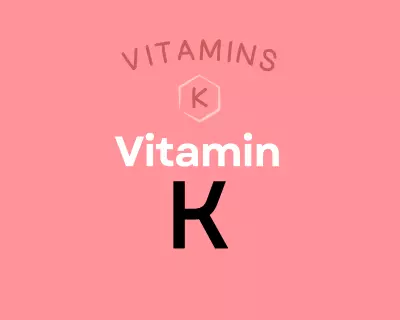
Vitamin K is actually a group of fat-soluble vitamins with a similar molecular structure, existing as K1, multiple isoforms of K2, and the synthetic form K3. This nutrient plays a vital role in coagulation, due to serving as a cofactor for proteins needed for blood clotting; it’s also essential for bone metabolism, cellular function, and the prevention of soft tissue calcification. Getting enough vitamin K2 can help protect against cardiovascular disease, may improve bone mineral density and skeletal health, and may even support endocrine function and brain health; there’s also some limited evidence it has anti-cancer and anti-inflammatory properties. Learn more about vitamin K here.
Brussels Sprouts Provide 83% DV Vitamin C
This crucifer is also an amazing source of vitamin C, providing 83% of the daily value per 1-cup serving.
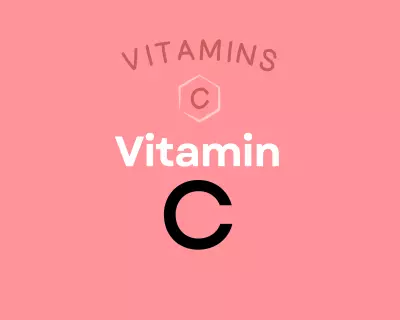
Vitamin C is a water-soluble vitamin that has powerful antioxidant properties (meaning it can help combat oxidative damage from free radicals and reactive oxygen species) and that serves as an enzyme cofactor (meaning it’s needed for enzymes to do their job, for example vitamin C is necessary for collagen synthesis, which is essential for bones, joints, teeth, blood vessels, skin and eyes) and playing important roles in immune system and skin health. Higher intakes of vitamin C are linked to reduced risk of heart disease, some forms of cancer, type 2 diabetes, cataracts, age-related macular degeneration, and gout. Vitamin C can also help regulate the stress response and reduce anxiety, and there’s preliminary evidence that it may also help prevent Alzheimer’s disease. Learn more about vitamin C here.
Brussels Sprouts Provide 308.4 mg of Polyphenols
A 1-cup serving of Brussels sprouts provides 308.4 mg of polyphenols, including naringenin, quercetin and kaempferol.
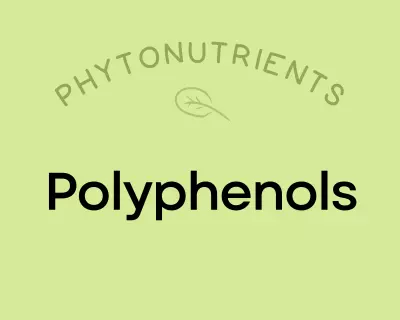
Polyphenols play a huge role in protecting against cancer, heart disease, diabetes, asthma, osteoporosis, neurodegenerative diseases, and other conditions associated with oxidative stress. In fact, a major reason foods like red wine and olive oil (as well as diets rich in both, such as the Mediterranean diet) show up as so beneficial may be due to their high polyphenol content! Along with chronic diseases, supplementing with polyphenols has been shown to protect against infections and reduce the signs of aging. Polyphenols exert their most potent effects by acting as antioxidants—preventing cellular damage by neutralizing hazardous oxygen radicals and improving cellular health as a result (which, in turn, benefits virtually every system in the body). As a result of their antioxidant properties, polyphenols also boost the immune system and protect against both chronic and acute diseases. In addition, polyphenols can help regulate enzyme function, stimulate cell receptors, modulate the functions of inflammatory cells (including T and B lymphocytes, macrophages, platelets, and natural killer cells), alter adhesion molecule expression, affect nerve cells and cardiac muscle cells, and exert antiviral effects. Learn more about polyphenols here.
Brussels Sprouts Provide 1800.5 μg of Carotenoids
A 1-cup serving of this controversial cruciferous veggie contains 1800.5 μg of carotenoids, including lutein, zeaxanthin, and beta-carotene.
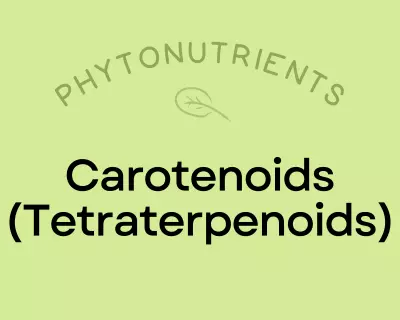
Carotenoids are a diverse group of phytonutrients that are responsible for giving fruits and vegetables vibrant red, orange, and yellow pigmentation. They were one of the earliest phytonutrients ever investigated by scientists (with research dating back to the 1800s!). Across studies, eating foods high in carotenoids appears to reduce the risk of head and neck cancers, supports vision health (particularly age-related eye diseases), may protect against metabolic syndrome and diabetes, and can reduce inflammation. Carotenoids have strong antioxidant properties, and help facilitate communication between cells by promoting the synthesis of connexin proteins, which create gap junctions in cell membranes that allow small molecules to be exchanged (which is part of how cells “talk” to each other!). Consuming carotenoids with fat significantly increases their absorption. Learn more about carotenoids here.
Learn What Foods Are the Best Sources of Every Nutrient
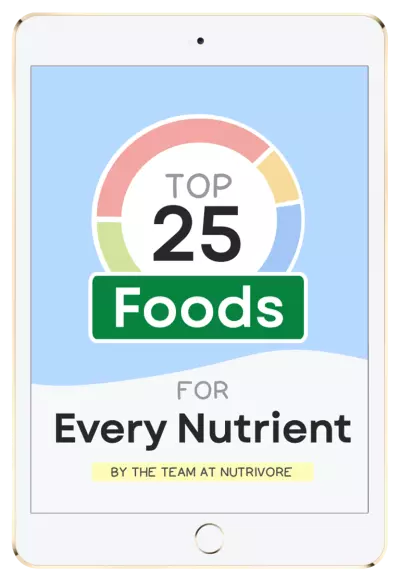
The Top 25 Foods for Every Nutrient
The Top 25 Foods for Every Nutrient e-book is a well-organized, easy-to-use, grocery store-friendly guide to help you choose foods that fit your needs of 43 important nutrients while creating a balanced nutrient-dense diet.
Get two “Top 25” food lists for each nutrient, plus you’ll find RDA charts for everyone, informative visuals, fun facts, serving sizes and the 58 foods that are Nutrient Super Stars!
Buy now for instant digital access.
How Much Brussels Sprouts Should We Eat per Day?
Brussels sprouts may have the reputation of being the vegetable every kid (and adult) loves to hate but this universally despised veggie is actually a nutrient powerhouse and seriously underrated!
Every serving of fresh, whole vegetables or fruit we eat daily reduces the risk of all-cause mortality by 5% to 8%, with the greatest risk reduction seen when we consume five or more servings per day. In fact, consuming 800 grams of vegetables and fruits daily reduces all-cause mortality by 31% compared to eating less than 40 grams daily. A 2017 meta-analysis showed that 2.24 million deaths from cardiovascular disease, 660,000 deaths from cancer, and 7.8 million deaths from all causes could be avoided globally each year if everyone consumed 800 grams of veggies and fruits every day.
Eating vegetables and fruit in abundance lowers risk of cancer, cardiovascular disease, type 2 diabetes, obesity, chronic kidney disease, osteoporosis and bone fragility fractures (including hip fracture), cognitive impairment and dementia (including Alzheimer’s disease), neurodegenerative diseases, asthma, allergies, chronic obstructive pulmonary disease, age-related macular degeneration, cataracts, glaucoma, depression, ulcerative colitis and Crohn’s disease, rheumatoid arthritis, inflammatory polyarthritis, non-alcoholic fatty liver disease, acne, seborrheic dermatitis, and lowers markers of inflammation. Learn more in Importance of Vegetables and Fruit.
Covering half of your plate with a variety of vegetables (and three quarters of your plate if your starchy food is a root vegetable or winter squash) at each meal is a simple way to easily achieve the goal of 5 or more servings of vegetables daily.
Studies show that, for every 100 grams of cruciferous veggies (like Brussels sprouts), we eat daily, all-cause mortality decreases by 24%! It’s always best to mix up the veggies you eat day to day (aiming for a wide variety of different vegetables and fruits throughout the week), and Brussels sprouts definitely deserve a place at the table.
Easily track your servings of Nutrivore Foundational Foods!
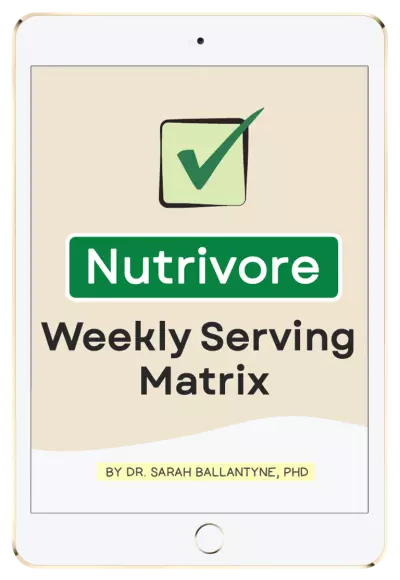
The Nutrivore Weekly Serving Matrix
The Nutrivore Weekly Serving Matrix digital resource is an easy-to-use and flexible weekly checklist designed to help you maximize nutrient-density and meet serving suggestions of Nutrivore foundational foods, all without having to weigh or measure your foods!
Includes a 22-page instructional guide and downloadable interactive guides.
Buy now for instant digital access.
Citations
Expand to see all scientific references for this article.
Clements RS Jr, Darnell B. Myo-inositol content of common foods: development of a high-myo-inositol diet. Am J Clin Nutr. 1980 Sep;33(9):1954-67. doi: 10.1093/ajcn/33.9.1954. PMID: 7416064.
McNaughton SA, Marks GC. Development of a food composition database for the estimation of dietary intakes of glucosinolates, the biologically active constituents of cruciferous vegetables. Br J Nutr. 2003 Sep;90(3):687-97. doi: 10.1079/bjn2003917. PMID: 13129476.
Phenol-Explorer: Brussel sprouts, raw
Piironen V, Toivo J, Puupponen-Pimia R, Lamp AM. Plant sterols in vegetables, fruits and berries. Journal of the Science of Food and Agriculture. 2003. Vol 83(4):330-337. doi:10.1002/jsfa.1316
Pravst I, Zmitek K, Zmitek J. Coenzyme Q10 contents in foods and fortification strategies. Crit Rev Food Sci Nutr. 2010 Apr;50(4):269-80. doi: 10.1080/10408390902773037. PMID: 20301015.
USDA Food Central Database: Brussels sprouts, raw


